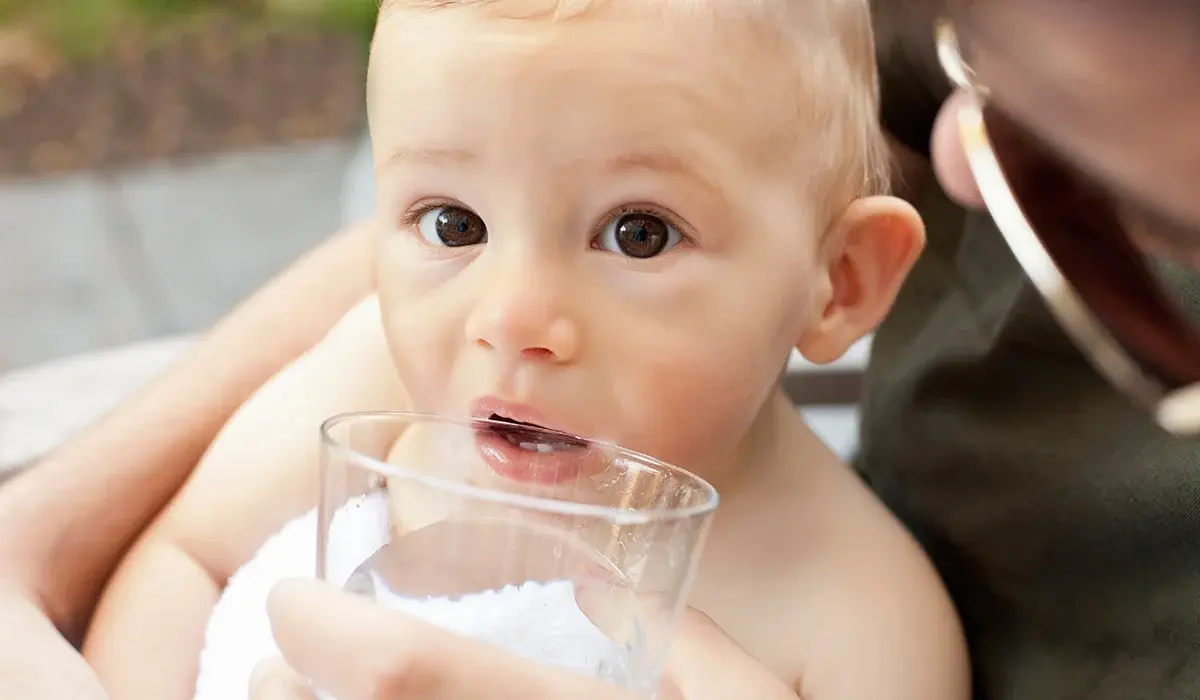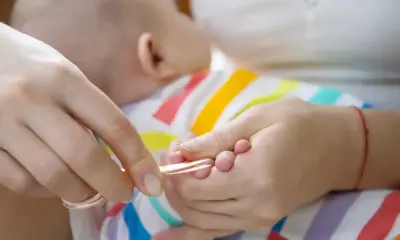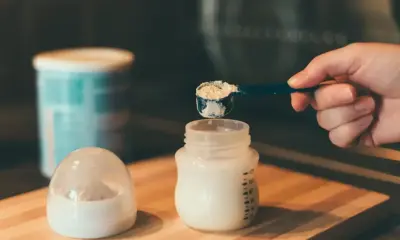Breastfeeding & Baby Feeding
Can Babies Have Water Before 6 Months? Expert Advice

Babies Drinking Water Guide: What Every Parent Should Know
As a parent, you may wonder when it’s safe to introduce water to your baby. You’ve likely heard that babies under 6 months shouldn’t drink water, but you might still have questions. This Babies Drinking Water Guide will answer your questions about when to start giving your baby water, how much to offer, and what to do if your baby doesn’t seem interested in drinking water.
Understanding when and how to introduce water is essential for your baby’s health and development.
When Can Babies Start Drinking Water?
In the early stages of life, babies rely solely on breast milk or formula for hydration. Experts agree that it’s best to avoid giving water before 6 months.
According to Christina Johns, M.D., a pediatric emergency doctor, and senior medical advisor at PM Pediatric Care, babies can start drinking small amounts of water at around 6 months. “This should be introduced gradually, starting with small sips between meals,” she explains.
David Berger, M.D., founder of Wholistic Pediatrics & Family Care, also adds that breast milk or formula is sufficient for hydration at this stage. “Water is not entirely necessary for babies under 6 months,” he confirms. So, rest assured, water is not essential for your baby until they start solid foods.
Babies Drinking Water Guide: Why Shouldn’t Babies Under 6 Months Drink Water?
Giving water to babies younger than 6 months can have unintended consequences. One of the main risks is that water might interfere with a baby’s ability to consume enough breast milk or formula, which provides the necessary nutrients. Dr. Johns emphasizes that introducing water too early could reduce nutrient intake, affecting your baby’s growth.
Another concern is the risk of water intoxication. Excessive water intake in babies under 12 months can lead to a dangerous condition called hyponatremia, which occurs when sodium levels in the blood become too low. Symptoms of this condition include seizures and lethargy. That’s why experts recommend no more than a few ounces of water for babies under 12 months.
It’s best to wait until your baby is 6 months old to begin offering small amounts of water.
Are There Any Exceptions to the Water Rule?
Parents may wonder if there are exceptions to this rule. What if their baby has a fever or constipation? While it’s tempting to give water during these situations, Dr. Johns advises against it. Instead, increasing breast milk or formula intake is a better way to address your baby’s discomfort.
Dr. Berger concurs, suggesting that, in cases of constipation, small amounts of prune or pear juice are better alternatives. However, always consult your pediatrician before giving your baby anything other than breast milk or formula.
How Much Water Should Your Baby Drink?
After the 6-month mark, you can start introducing small amounts of water. But how much should your baby drink?
- Infants younger than 6 months: Only breast milk or formula is necessary for hydration.
- For babies aged 6 to 12 months: Offer small sips of water, typically around 4-8 ounces daily. Water should complement solid food intake and not replace breast milk or formula, which are still the primary source of fluids.
- For toddlers aged 1-3 years: They should consume between 1-4 cups of water daily.
- For children aged 4-5 years: The recommended amount is 1.5 to 5 cups daily, depending on their activity level and environment.
While introducing water, continue offering breast milk or formula as your baby’s primary source of nutrition and hydration.
What to Do If Your Baby Doesn’t Like Water?
Many parents face a common challenge: their baby refuses to drink water. If your 6-month-old isn’t interested in sipping water, don’t panic.
Dr. Johns advises not to stress if your baby is under 12 months and isn’t drinking water regularly. “As long as your baby is consuming enough fluids from breast milk or formula, there’s no need to worry,” she reassures parents.
When introducing water, try offering it in a sippy cup, as this can help babies develop the necessary skills for drinking from a cup. Repeated exposure is key. Babies often need several attempts before they accept a new food or drink. “Consider role modeling how wonderful your own water bottle is! Your baby will pick up on your excitement and want to join in,” suggests Dr. Johns.
The key is patience and consistency. As long as your baby is healthy, thriving, and meeting developmental milestones, there’s no need to force water drinking.
Signs Your Baby Is Hydrated
You might wonder how to know if your baby is properly hydrated. One of the simplest signs is urine output. If your baby is producing clear or light yellow urine, they’re likely well-hydrated. Additionally, if your baby appears happy, active, and is meeting their growth milestones, this indicates proper hydration and nutrition.
Dr. Berger stresses that as long as your baby is healthy and shows no signs of dehydration, there’s no need to worry about their water intake.
Conclusion: Navigating Baby Hydration with Confidence
Introducing water into your baby’s diet can feel overwhelming, but by following the Babies Drinking Water Guide, you’ll know exactly when to start and how much to give. Stick to the recommendations for babies under 6 months and gradually introduce water after this stage.
Remember that breast milk or formula is still the best hydration source during your baby’s first year. And if your baby doesn’t take to water right away, don’t stress. Keep offering it gently and with patience.
By following expert advice, you can ensure that your baby stays healthy, hydrated, and nourished. Keep in mind that every baby is different, so be flexible in your approach.
For more expert parenting tips, healthy recipes, and information on baby care, explore more news on this website.












